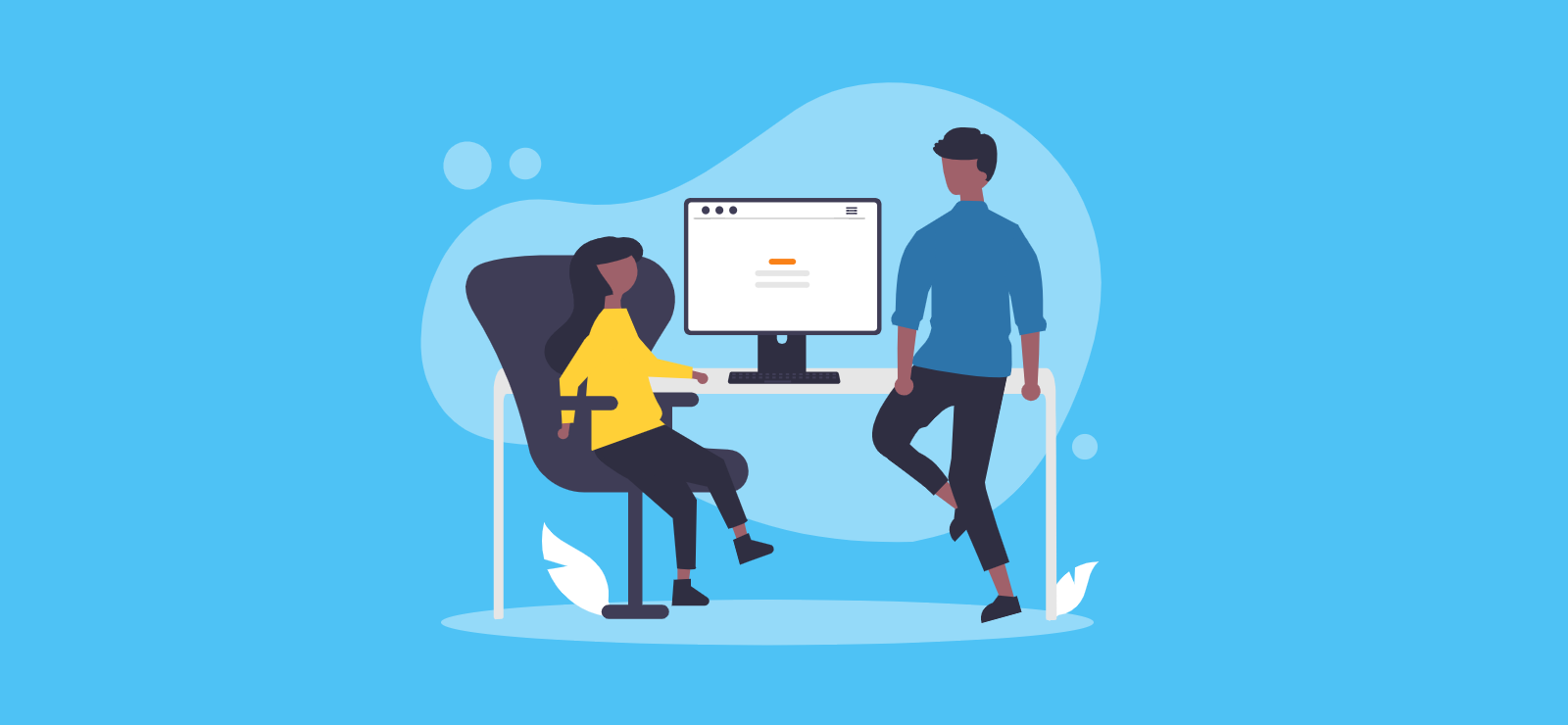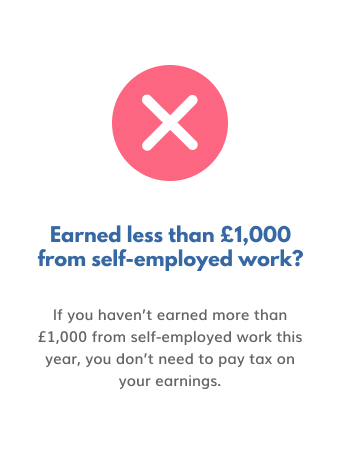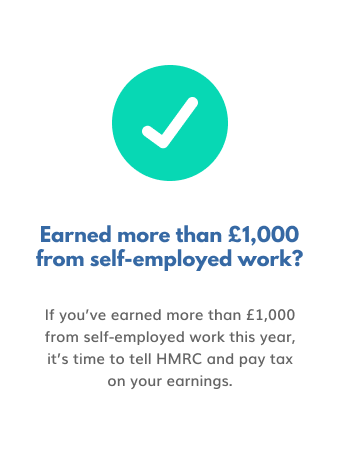

Registering Your Child’s Etsy Business and Your Tax
If you haven’t heard of Etsy before you probably soon will. From its 2005 inception as an ecommerce site for crafters, this popular buying and selling platform now boasts a whopping 4.4 million active sellers and more than 80 million active buyers from across the globe.
What can you do with Etsy?
Etsy is a giant online marketplace consisting of multiple shops packed with unique items, which are usually handmade or vintage. It’s a place for cool and quirky gifts and homeware, offering the buyer something one-off and different. For sellers, it’s the perfect opportunity to turn a hobby into an income, whether part-time or even full time.
How much money can be made on Etsy?
How long is a piece of string? Some people make an extra £30 – £50 a month while others make enough to jack in the 9-5 and go full time. Not many of us are likely to become a millionaire by selling on Etsy, but the extra income can certainly be handy.
Can my child sell things on Etsy?
Etsy can be quite strict, and make it clear in their terms and conditions that anyone selling via the platform must be 18 or over. This means many parents and carers are setting up Etsy accounts on behalf of their children, and selling items for them (which is fine).
The difficult bit is that being over the age of 18 means you’re expected to pay tax and National Insurance on your Etsy income, even if it’s technically someone else’s.
Will I need to tell HMRC about Etsy income if I register for my child?
The vague answer is maybe. Put aside who the income actually belongs to (because HMRC don’t really care – as far they’re concerned, it’s in your name, and that’s that). What really matters at this point is how much this activity earns you.


Is it less than £1,000 a year? There’s a trading allowance!
Thanks to the trading allowance, if your trading income (the total pre-tax amount you make from self-employed work) is £1,000 a year or less, then you may not need to tell HMRC at all. This applies even if you also receive an income by working for an employer.
What if the income is higher than the trading allowance?
If your child’s Etsy earnings are above £1,000 in a tax year, you – as the named Etsy account-holder – will need to register for Self Assessment as a self-employed person.
Again, HMRC won’t want to know that it’s your child doing all the work of making products and listing them. The Etsy account is in your name and linked to your bank account, therefore you’re responsible. HMRC sees you as self-employed, not your child.
It’s also worth keeping in mind that online platforms such as Etsy are bound by the digital platform reporting rules. This means they must collect data about income that you receive as a result of selling through the platform, and report this directly to HMRC.
Register for Self Assessment
HMRC encourage you to register for Self Assessment as a sole trader online on GOV.UK. If you can’t use the online registration service you’ll need to complete a CWF1 form and send it to HMRC through the post.
You’ll be given a Unique Taxpayer Reference (UTR) number which identifies your tax account. Keep this safe! You’ll need it to sign in and submit your Self Assessment tax returns (which you must do in order to pay tax and National Insurance on the untaxed income).
Ideally, you should register with HMRC as soon as possible, and no later than 5th October following the end of the tax year in which you started self-employment.
How does this affect my tax bill?
If the total amount you earn is less than the Personal Allowance in a tax year (which is £12,570 for the current tax year), then you don’t have to pay tax. Going over this threshold means you’ll start paying tax at a rate of 20% – yep, even if that includes Etsy earnings!
The amount of tax that you pay is worked out by adding together all of your income, deducting any tax you’ve already paid (such as via your employer), and then deducting any allowances or expenses. The amount remaining is then multiplied by the tax rate which applies to the proportion of earnings within each tax band.
A note on the Personal Allowance, trading allowance, and expenses
It’s worth noting that you can use your Personal Allowance and the trading allowance. So, you can earn over the tax-free threshold, and still have that £1,000 allowance which covers your self-employed income.
If you go over the trading allowance, you can still offset the allowance against your income, or you can claim your expenses against your income. You can’t use both at the same time, but you can choose which option you use each year – so go with the one that gets the biggest reduction to your tax bill!
An example of how it might work
You work for an employer on a part-time basis, and earn £11,500 in one tax year (which runs from 6th April to 5th April). Your child is using your Etsy account to sell their craft products, and over that same tax year they earn £3,000. Top marks to them!
- This means you effectively earned £14,500 (£11,500 + £3,000)
- Deduct the Personal Allowance (£12,570), which leaves £1,930
- And then (assuming you decide not to count your expenses) deduct the £1,000 trading allowance, which leaves £930
- You’ll pay tax on that £930 at a rate of 20%. Your self-employed income doesn’t meet the National Insurance threshold, but you can still make voluntary contributions if you want to.
It’s up to you whether you simply pay the tax, or decide to deduct the tax and National Insurance from any Etsy income before passing it on to your child.
What if I’m already a taxpayer?
Even if you already pay tax, the same principle applies. As far as HMRC are concerned, this is additional income, and you’ll pay tax on it. Just remember that you can still claim the trading allowance on self-employed income, even if you also work for an employer.
It’s also worth noting that the National Insurance you pay on self-employed profits is separate to any NI you pay through an employer.
What kind of things can I claim as an expense for selling on Etsy?
When running a business (which is effectively what you’re doing), HMRC allows you to subtract some of the costs of running your business from your turnover, which in turn reduces your tax bill. These costs are known as “allowable expenses”.
Unfortunately, not every single thing you spend money on will be an allowance expense. This makes it really important to know what is claimable and what isn’t. Thinking about Etsy, there are quite a few expenses that may be tax deductible in this way.
Typical allowable expenses with Etsy
- Etsy fees: Most ecommerce platforms will charge selling or listing fees, but the good news is you can deduct the fees that Etsy charges people to sell on their website. This includes the cost of publishing the listing, and the transaction fee they charge each time something is sold.
- Things you buy to sell on: This would be raw materials and stock
- Printing and copying: Perhaps your child prints some adverts with their Etsy shop details on, to put through local doors. If they use your home printer, paper, and ink then these are all tax deductible.
- Office costs: You may not have a home office as such, but anything like pens, pencils, notepads etc. that you use as part of your Etsy business are also tax deductible.
As your business is very likely to be home based, you may also be able to claim a proportion of your home working costs for things like heating, Council Tax, electricity, and internet.
How you divide your costs is largely up to you, but you need to be reasonable and able to provide evidence if asked. Many people do it by working out what each room in their house costs to ‘run’ and apportioning it accordingly based on the amount of time the room is used for business. Our team will be happy to help you with this if you’re not sure.
Will it count towards the High Income Child Benefit charge?
If you or your partner are currently claiming Child Benefit, and you earn just less than £60,000 already, then this bit is for you.
Go over £60,000 in total income and you may have to pay a tax charge, known as the ‘High Income Child Benefit Charge’. This will apply if you have an individual income of more than £60,000 and either:
- You or your spouse/partner receive Child Benefit
- Someone else gets Child Benefit for a child who lives with you, and they contribute towards the child’s maintenance equally
This is still the case regardless of whether the child lives with you or not. Take a look at the High Income Child Benefit Tax Charge page on the GOV.UK website for more details.
It might also reduce your Universal Credit
If you’re claiming Universal Credit, the amount you receive depends largely on how much you earn. As your Etsy income will need to be declared, your Universal Credit payment will gradually reduce as your earnings go up. For every £1 you earn, your UC payment reduces by 55 pence.
If you’re on legacy benefits (like Jobseeker’s Allowance or Employment and Support Allowance) and haven’t moved over to Universal Credit yet, these could reduce too. However, this really depends on your own individual circumstances, so head to Citizen’s Advice.
It’s also well worth using a benefits calculator to see how increasing your income by selling your child’s items on Etsy will affect what you get.
Filling out tax returns and declaring income can be unnerving, especially if you’ve never had to do it before. Learn more about our online accounting services, or get an instant online quote.
Want to learn more?
Subscribe to our newsletter to get accounting tips like this right to your inbox

Read more posts...

The Accountancy Partnership – Our Positive Reviews
18th November 2024Here at The Accountancy Partnership, we’re proud of our customer reviews The reviews we receive from our customers show how hard we…
Read More
What’s the Most Tax Efficient Director’s Salary?
8th November 2024As a director you’re legally separate from your limited company even if you’re also the owner. This means you’re not allowed to…
Read More
What’s the Difference Between the National Living Wage and the National Minimum Wage?
7th November 2024The National Living Wage (NLW), the National Minimum Wage (NMW), and the Living Wage all sound confusingly similar, so understanding how they…
Read MoreConfirm Transactions
The number of monthly transactions you have entered based on your turnover seem high. A transaction is one bookkeeping entry such as a sale, purchase, payment or receipt. Are you sure this is correct?
Please contact our sales team if you’re unsure
VAT Returns
It is unlikely you will need this service, unless you are voluntarily registered for VAT.
Are you sure this is correct?
Call us on 020 3355 4047 if you’re not sure.
Bookkeeping
You will receive our bookkeeping software Pandle for free, as part of your package.
You can use this to complete your own bookkeeping, or we can provide a quote to complete your bookkeeping for you.
Please select and option below:
Call us on 020 3355 4047 if you’re not sure.

